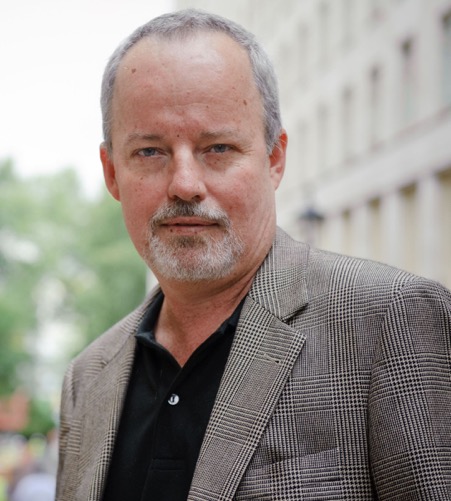Best-selling crime author, Michael Robotham, continues to make his mark in the fictional world of murder, mystery and twists.
Michael Robotham started his writing career as a journalist, but is now one of the world’s best crime writers. The Australian author has sold over six million books, and has received and been shortlisted for many awards, winning the prestigious Gold Dagger crime writing award in 2015 and the Ned Kelly award for best novel in both 2005 and 2008.
In this Q&A, Michael Robotham reveals insights into the thoughts, processes and writing routine of a crime novelist.
Q: In your novels, do you base incidents that happen on real life events, and do you perhaps base your characters on people you know?
A: Most of my novels have been seeded in a real life event. (I never use the word ‘inspired’ because I don’t like the idea that any real life crime could inspire anyone.)
For example, the idea for Life or Death arose from a two-paragraph newspaper story in 1995 about a man who had escaped from prison the day before he was due for release. The obvious question was ‘why?’ I knew it was a great opening to a book, but it took me more than ten years to think of a reason and then another ten to find the courage to write the book.
Lost (the drowning man) was seeded in the story of a missing child that I read on a milk carton in the US. (They used to advertise missing children on milk cartons).
Watching You was triggered by a stalking story I covered as a journalist. The same is true of Shatter – which is based upon two real-life cases in the UK and Australia.
My characters are fictional, but they often contain elements of people I’ve met. If it’s a minor character, I might get the description by simply looking out the window of the café where I’m writing and noticing someone walking along the street.
Major characters come first from their ‘voices’. I don’t have a picture of them in my head, but I do want their voice to resonate. They have to sound and feel real to me. They have to live and breathe in my imagination.
Q: How do your characters develop? Do you find that your characters take on a life of their own when you are writing? Or are you always in completely in control of what they say or do?
A: I’m always a little wary of writers who say their characters control the story. Sounds rather psychotic to me – like listening to voices in your head. I don’t plot my books in advance, so my stories do unfold organically.
Characters will sometimes surprise me and they take on more central roles than I expected. Either that or I fall in love with them, which makes it difficult to kill them off, or make them the villain. I know that I’m in always in control of what they say and do, but they can be rather recalcitrant and stubborn. When they refuse to do as they’re told, it’s often a sign that I haven’t thought through their motivations well enough.
Q: When you are not writing, what do you do to relax? Do you read for pleasure?
A: I write pretty much every day. Even when I’m walking along a beach, or playing a practice round of golf, I’m always thinking about the book. This is a legacy of not plotting the books in advance and normally writing in the first person present tense – which means that when my characters are in great danger, or under stress, I’m there with them, hanging by my fingertips from that cliff, unsure how to save them.
I wish I had more time to read, but I usually avoid crime novels because I’m worried they might influence me. Instead, I try to read novels that everybody is talking about – the award winners and the well-reviewed. I’ve just finished the latest Ian McEwan Nutshell and have started The Girls by Emma Cline, which sold for a massive advance.
Q: What has been your greatest writing achievement?
A: Getting published is a huge achievement. Making a living out of writing is equally big. But from a professional standpoint, winning the Crime Writers Association Gold Dagger last year is right up there. It is arguably the biggest crime writing award in the world and the who’s who of past winners is astonishing. To be listed among them is enormously satisfying.
Q: What general advice would you give to an aspirant writer just starting out?
A: My best advice to budding writers is that writing must begin as a passionate hobby. Don’t do it for money, or fame, or immortality. Write because you love it. And if someone outlawed writing tomorrow, you would scrawl sentences by candlelight in your basement while the jackboots marched in the street above. Write, write, write and write some more.
Read everything. Take it apart. Work out what you like and dislike. How could it have been better? Then if you’re lucky enough, your story will find the right agent, who will find the right publisher.
Once you’re published, your luck needs to continue. You could write the greatest book since Great Expectations and it could disappear without a trace. Why? I wish I knew? The bestseller lists are full of ordinary books.
Q: What guidelines would you give a writer about getting published?
A: If you want to get published…
Rule No.1: Write the best damn book you can. Polish it. Make it shine. Don’t do a half-arsed job and expect someone else to fix it up. You’re the writer. Be professional.
Rule No.2: Find an agent (in some smaller markets you can go directly to publishers). Often it’s harder to find an agent than a publisher, but the good ones are worth the 10% or 15% they take.
Q: What would you consider to be the most important writing tip?
A: The most important writing tip – MAKE THEM CARE.
About the Author:














